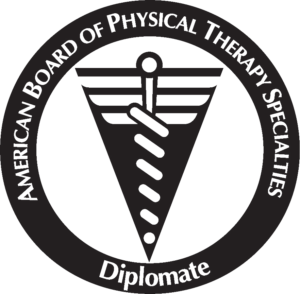Pregnancy is an amazing journey that brings profound changes to a woman's body. Alongside the…
Knock Out Stress with a Few Simple Tips
I have stress. Who doesn’t? I am a working mother of 3, I am co-owner of a busy physical therapy practice, and to top it off I decided about 3 weeks ago to resume working on my doctorate degree in rehabilitation science. A typical day for me is spent with every waking minute filled with a “to-do” list that floats around in my head, on my phone calendar AND paper calendar (because if I only keep one something will get missed) and on sticky notes that I place wherever and find too late. From what I can tell there are many of us who live this way, and it can be stressful. I am blessed to find happiness in my craziness, and to understand how important stress management is for my health. I talk with our patients everyday about stress management, and many people don’t realize there are mountains of research in this area, and there are techniques that truly do help manage stress, improve the nervous system function, help in treatment of anxiety and depression and lead to longevity in life!
Physical Activity 3 days a week at a moderate intensity has a huge impact on the autonomic nervous system. When this system is out of balance, we tend to have high sympathetic activity dominance creating a body’s response of inflammation. When inflammation lingers for too long, it causes disorders like depression, anxiety, heart disease, gastro-intestinal disorders, headaches, muscle tension and pain, even cancer. If we function at a high stress level day after day our autonomic system becomes imbalanced and is unable to correct itself. Exercise is one way to help release stress and put balance back into this system. It can be Aerobic exercise, like walking, swimming or cycling. Tai Chi is one form that has been seen in research to improve function as well.
Another technique for stress management that is well researched is yoga and yogic breathing. We talk about this with our patients until our faces are blue, the importance of diaphragmatic breathing to calm a stressed system. The benefits of breathing from the diaphragm are amazing. It improves lung function, mobilizes the rib cage allowing for improved flexibility and function of the thoracic spine and improving posture. The diaphragm allows for good function of the core muscle system. It helps in digestion. It aids the circulatory and lymphatic systems, preventing swelling. It helps reduce anxiety, depression and pain. The diaphragm also functions to balance the ANS, supporting the parasympathetic system to allow our bodies to “rest and digest” rather than always feeling like we are in a “fight or flight” mode.
This leads into Meditation. Meditation has powerful effects on our ANS and can truly bring calm to our daily storm. There is evidence to support that even just 5 minutes of meditation daily can reduce blood pressure, resting heart rate and improve autonomic function. The response I usually get is, I don’t have even 5 minutes. I decided about 6 months ago, I needed to try and fit this in for myself, primarily to see how hard it was to work into my day. I found that it worked best for me at bedtime. When I lay down I close my eyes and focus on belly breathing for 5 minutes or until I fall asleep. Now I cant wait for my 5 minutes. It is truly amazing how good it feels to breathe out the day, and I sleep much better. Find 5 minutes, put down your phone, turn off the TV, unplug and take time to reduce the stress and improve your health!
–Sarah Dominguez, MSPT, CLT, WCS
This blog is here for your help. It is the opinion of a Licensed Physical Therapist. If you experience the symptoms addressed you should seek the help of a medical professional who can diagnose and develop a treatment plan that is individualized for you. If you enjoyed this blog, check out our website at foundationalconcepts.net for more blog entries and to learn more about our specialty PT practice, Foundational Concepts. Follow us on Twitter @SarahpelvicPT or @Jenn_pelvic_PT or @AmandaFisherPT and like us on Facebook/Foundational Concepts for updates.








This Post Has 0 Comments